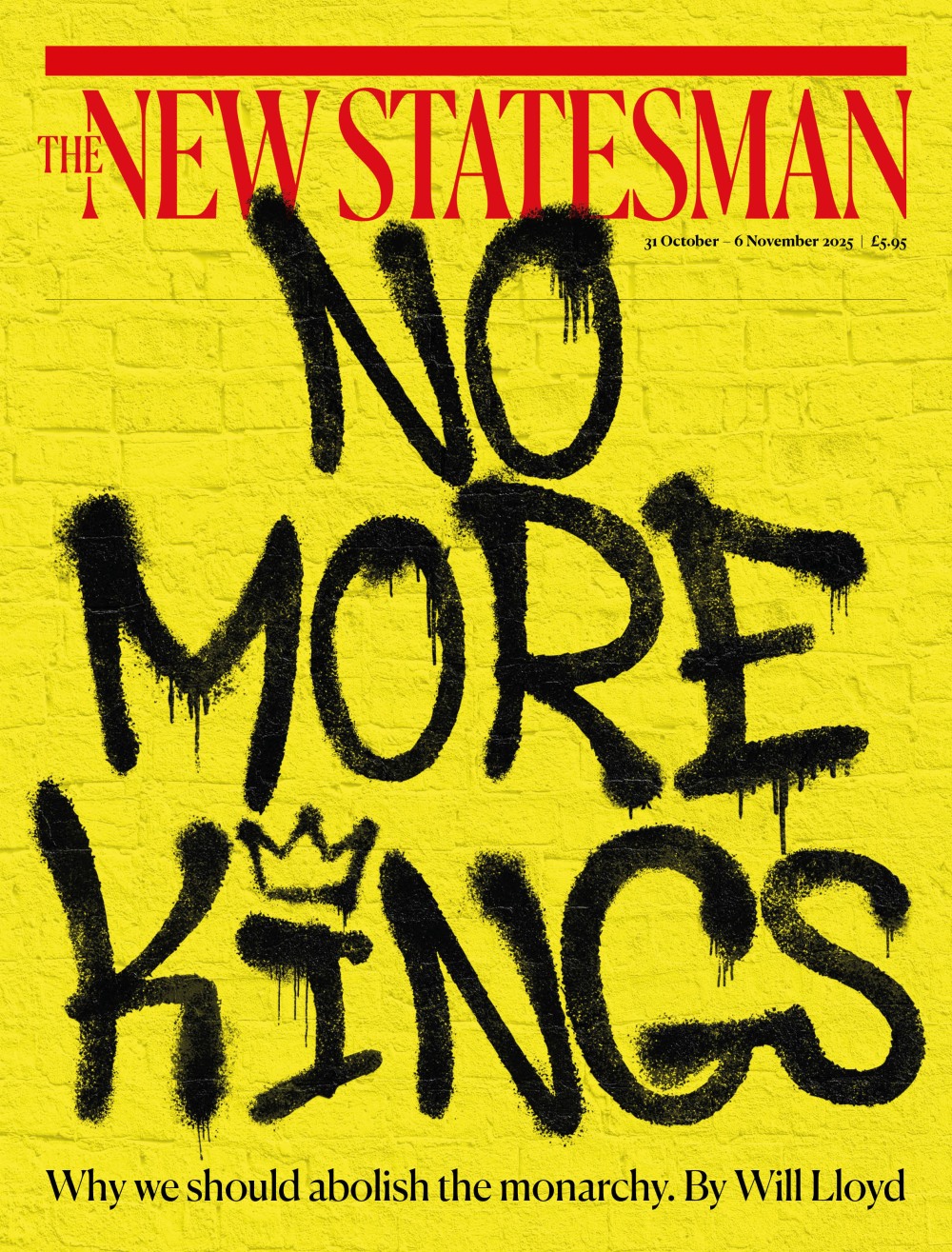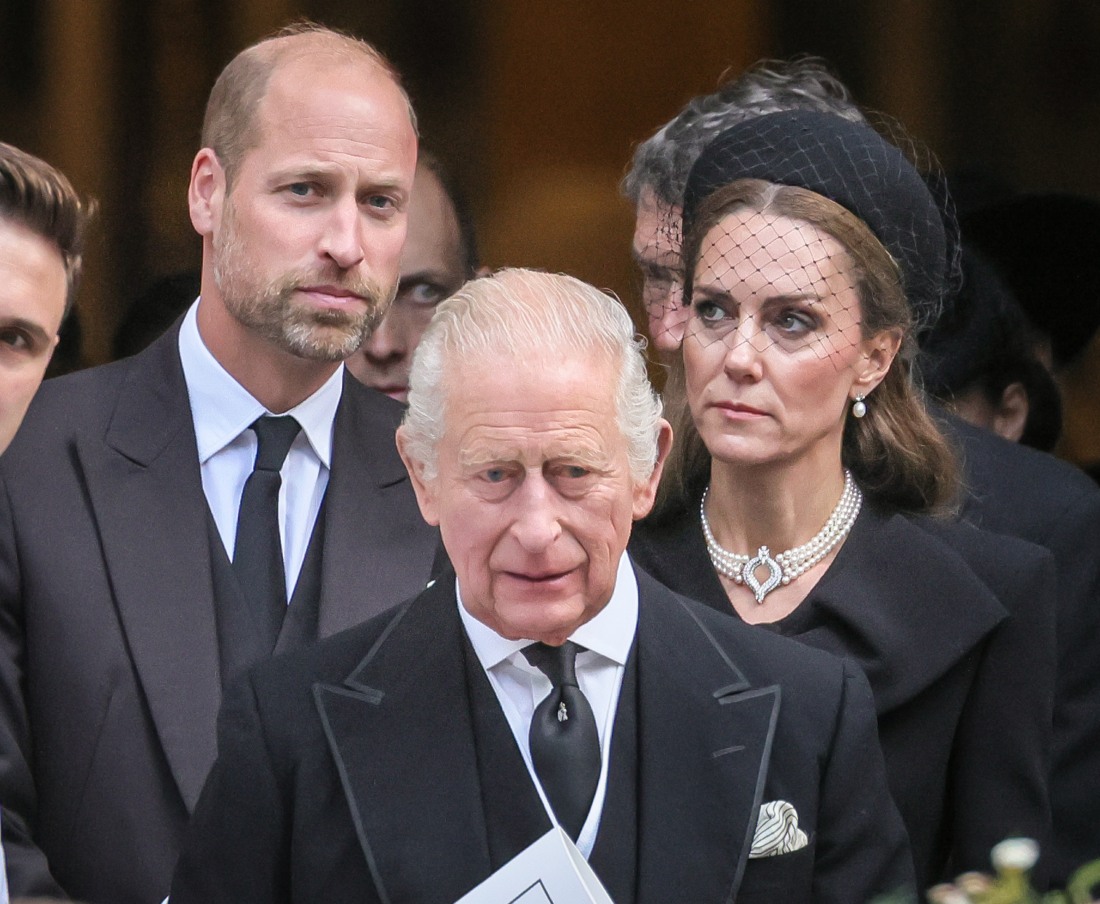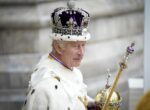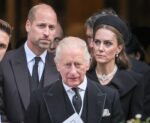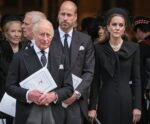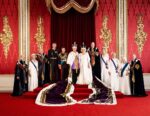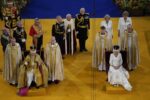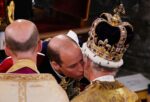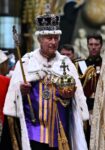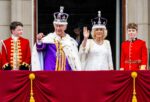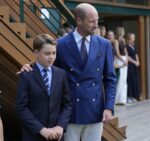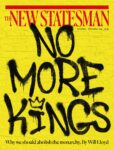There are these standout weeks in royal history, where something huge is unfolding and everyone knows it at the time and you watch it like it’s a play set on a grand stage – a royal wedding, the death of a queen, the exit negotiations of a popular ginger prince and his American wife. What’s strange about everything that’s happened in the past month is that the public has a sense that this is one of those big moments in royal history where something changes irrevocably…and yet the Windsors are not acting like this is a big moment whatsoever. Prince Andrew and everything around him, and his decades of depravity, cruelty, arrogance and sex trafficking, all of it has very suddenly changed everything for the Windsors, and they don’t know what to do. They’re treading water or bickering amongst themselves or trying to distract from the story or, in the case of the heir and his wife, they’re on vacation. Well, the New Statesman has tried to capture the mood, and the mood is quite suddenly republican and anti-monarchist. You can read the full cover story here – it’s an excellent read which makes many excellent points. I wanted to do some highlights of the main thrust of the piece: the New Statesman says outright that when King Charles dies, William should abolish the monarchy.
The Andrew Problem: The truth is that an estimated £13m of public money helped to fund the decades-long Caligulan lifestyle of a prince who cavorted with, among others, a convicted paedophile, a Libyan arms smuggler and a Kazakh oil baron. This truth was obscured, denied or ignored – that is, until Andrew’s world began to collapse in 2011. Since his 2019 Newsnight interview, the prince has been in continuous freefall. He may yet pull down the House of Windsor with him. Though he vigorously denies the latest allegations of sexual impropriety against him, made in Virginia Giuffre’s posthumous memoir Nobody’s Girl, Andrew nevertheless issued a terse 103-word statement, printed under a royal coat of arms, on 17 October. It explained he would “no longer use my title” of Duke of York or the other “honours” bestowed on him. The use of “my” suggests Andrew does not understand the dark depths of the well the Windsors find themselves in.
Charles & William don’t understand this moment either: The King and Prince William have not seen the need to issue their own statements about the allegations against Andrew. They have instead been classically mute in the old Windsor way. Neither of them has spoken about the allegations against Andrew publicly. Charles’s lackeys feed journalists lines about his frustration with the former duke or, more extraordinarily given the reverence he publicly holds his mother in, blame Andrew’s conduct on the indulgence of the late Queen Elizabeth. (Being dead, she cannot answer back. The King’s silence is less explicable.) Rather than taking responsibility for the damage their family has done to Britain’s reputation and clarifying exactly what steps will be taken to ensure that the Windsors never produce and protect another Andrew, open explanation is left to others.
Andrew should face criminal investigation: Forget the allegation that a key member of the head of state’s family stands accused of ordering his taxpayer-funded police protection officer to dig up dirt about Giuffre. Do not ask questions about the £500,000 Andrew paid for a “PR expert” who sought to discredit Giuffre by enlisting the services of an internet troll. Blame the rot on the apple, not the orchard it fell from. Clip it from the branch. Heal.
Quotes from Andrew Lownie, who wrote the book on the Yorks: “Obstructions were placed in front of Andrew,” Lownie told me on 27 October. “Ambassadors were told not to talk to me. Interviews with major magazines were pulled just before my book went to press. A PR firm was set up – with whose money we don’t know – to undermine me.” Lownie has been on a book tour in front of audiences in what he calls “Middle England”. The “crusty colonels” out in the shires are not happy with the firm. “The Windsors are in dangerous territory,” he says.
William is not a great intellect: William, the heir to the throne, is perhaps the most underexamined of all. We are briefed [that] he will be a fresh, positive, modern influence who will delouse the archaic fabric of monarchy. He cries in commoner’s kitchens about mental health and is praised for his empathy. He watches Aston Villa and may even be able to name their second-choice goalkeeper. He even made sure his press secretary went to a comprehensive, not a public school. We know from the royal super-biographer Robert Hardman that William is unable to name a favourite author, but that this “box-set guy” does love “Batman-related” superhero movies.
William is too lazy to read: In some respects William might simply reflect what the average British bloke is like today. But average isn’t the expectation of the Crown, and he differs a great deal from Charles and his grandmother. Thanks to Valentine Low, another long-time royal observer, we learn that: “William is not a great reader: he prefers an oral briefing.” In Power and the Palace, Low reports that William will be the first monarch in several generations not to have read Walter Bagehot’s The English Constitution. Read between the lines. What are they telling you?
Spare did real damage to William’s image: In Prince Harry’s Spare, William is a frowning, balding, swearing, feuding, violent Abel, who obsesses over keeping his brother’s charities out of Africa, as if these were territories that belonged to him the way they once belonged to Victoria. William emerges as furious and bossy, with an ultimate mission: the lifelong endurance test his grandmother called “duty”, a task he is prepared to sacrifice his brother for. “The monarchy, always, at all costs, had to be protected.” What exactly is being protected at this stage? None of the arguments for paying to feed and water the Windsors make much sense any more.
The Windsors are already thinning out: It may be that this power is beginning to fade. It will soon be questioned in parliament, a highly unusual moment, pregnant with possibility. The world is rapidly dissolving and so are the Windsors. The family itself is thinning out, with fewer and fewer of them to go around. The King is an aged, ill man who will be succeeded by a middle-aged man, who, in turn, will be followed by George, by then long past his youth. The future of the House of Windsor will be a conveyor belt of cloistered and confused men attempting to force consensus on an ungovernable country.
Stopping the rot: William should stop the rot and acknowledge the truth when his father dies. The mystique is gone. Charles III should be the last King of England. He is the last Windsor who really believes in any of the hocus-pocus of his house. William doubts that God exists. How can he go through with a coronation in Westminster Abbey without acknowledging that God has put him there, on the throne? Abolition would be contested and vicious. Or, the monarchy could end very beautifully.
Yep. All of this. As I said, an interesting moment in what’s left of royal history. It reminds me, to make a very strained comparison, of what happened after Princess Diana died. QEII got it wrong, Charles got it wrong, and the Windsors just seemed to be completely out of touch with the mood of the public. That moment saw a rise of republican sentiment as well. But I like what the New Statesman is doing here, pointing out how the system really doesn’t make sense anymore and how ridiculous it is that the current king is fighting with his degenerate brother over which taxpayer-funded home the brother will live in next. And yes, William is… profoundly incapable. We really are living through some unique history. I’m also including a New Statesman video below which is excellent.
Photos courtesy of Avalon Red, Cover Images.
